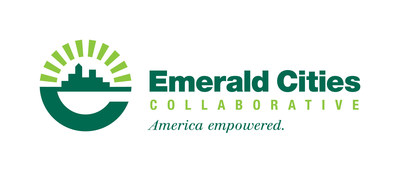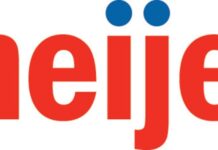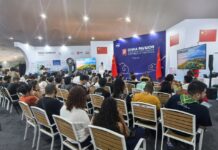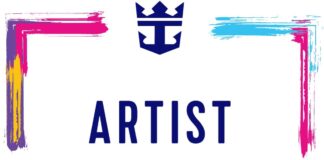WASHINGTON, June 28, 2017 /PRNewswire-HISPANIC PR WIRE/ — Emerald Cities Collaborative’s (ECC; www.emeraldcities.org) innovative RENEW Multi-family program helps preserve the supply of affordable housing by using energy and water efficiency upgrades to reduce owners’ operating costs – lowering utility bills enough to offset the cost of the efficiency improvements.

Launched in Seattle in December 2015, the program (http://emeraldcities.org/renewretrofits/housing) is now paying off.
Several nonprofit owners of affordable apartment buildings are seeing lower energy and water bills, as well as reduced carbon emissions – results that align with ECC’s work at the intersection of environment, economy and equity and its mission to build a sustainable, just and inclusive economy.
To make RENEW Multi-family work, ECC partners with housing owners, state housing finance agencies and local utilities to facilitate up-front financing for the energy- and water-saving measures – loans that are paid off with the resulting energy bill savings.
In Seattle, the Washington State Housing Finance Commission (WSHFC) is the lender, and municipal electricity utility Seattle City Light (SCL) has agreed that the loan can be paid off via on-bill repayment, or OBR.
Savings Add Up
Since launching RENEW Multi-family in December 2015, EC Seattle Director Steve Gelb has overseen the completion of energy and water efficiency upgrades to 436 affordable apartments in four buildings, two owned by Plymouth Housing Group and two by Bellwether Housing, both nonprofits. As a result, water and energy use and carbon emissions have declined by 4.5 million gallons, 2.3 billion BTU and more than 400,000 metric tons a year, respectively.
Plymouth, Bellwether and their low-income tenants are also realizing monetary savings: more than $140,000 a year on water and electric bills for owners and almost $7,000 a year for tenants.
Now working with Plymouth, Bellwether and several other nonprofit owners of 16 additional affordable multi-family buildings, EC Seattle has nearly 1,000 more apartments at various stages of development. One Bellwether building with 100 units is already under construction; the others range from signed pre-development agreements and initial assessments to project development and bidding and contracting.
Projected total savings for the 1,428 units completed or in the pipeline are:
- Water: 7 million gallons per year
- Carbon: 889,561 metric tons per year
- Owner utility bill savings: $255,599 per year
- Tenant utility bill savings: $7,806 per year
A National Model
The RENEW model could ease the increasing nationwide scarcity of affordable, multi-family rental housing, whose owners struggle to stay afloat in the face of rising operating costs. In aging buildings in particular, those costs often outpace the rents that affordable housing owners are permitted to charge their low-income tenants.
ECC Vice President of Investments Kevin Warner is confident that RENEW can be taken to scale nationally. “Every market, every city, every state has the three critical components: utilities, utility customers – building owners – that could benefit from efficiency retrofit projects and aligned financing partners,” he says. “Our job is to bring them together and facilitate transactions that generate measureable and reliable benefits for all stakeholders.”
Critical Project Development Role
Under RENEW, ECC takes on the critical project development role at no up-front cost to the building owners. EC Seattle’s comprehensive project assistance includes benchmarking of energy and water use, project management, technical assistance, pre-development financial support and facilitation of project financing utilizing multiple community financial resources.
Based on his initial success, Gelb hopes to expand RENEW to up to 30 buildings statewide by next year and possibly add a solar energy component. ECC also is working to launch the program this year in California’s Bay Area, where EC San Francisco Director Avni Jamdar is working to institute OBR.
One Loan, One Bill Customized Approach
Seattle’s RENEW model is notable for aggregating energy and water improvements into one loan from WSHFC and one line item on the housing owner’s monthly electric bill. SCL will simply collect and forward to WSHFC its share of the monthly loan payments.
RENEW’s customized approach is also allowing Plymouth Housing to finance needed non-energy building upgrades, which WSHFC approved because they serve the commission’s interest in preserving affordable housing, whether through energy efficiency or structural improvements.
At the 2015 RENEW Multi-family launch event, Plymouth Housing Group Deputy Director Betsy Hunter praised Gelb and the RENEW team for “working relentlessly to develop a program that will work for Plymouth and other nonprofit housing owners to save on operating costs and raise our awareness about energy use to make the city greener.”
She continued, “We should recoup our investments within just a few years, and we will enjoy the energy benefits much longer than that. That’s the right kind of investment for nonprofits, which pledge to operate our properties for many decades.”
To learn more about ECC’s RENEW Multi Family Program, please visit http://emeraldcities.org/renewretrofits/housing.
Emerald Cities Collaborative (www.emeraldcities.org) is a national nonprofit network of organizations working together to advance a sustainable environment while creating economic opportunities for all. ECC is headquartered in Washington, D.C., and works in “Emerald Cities” nationwide with local and national partners that bring resources and expertise from the community, labor, business and government sectors.
Media Contact
Ronnie Kweller [email protected]; 202-688-0880; 202-276-9327
Logo – https://mma.prnewswire.com/media/528654/Emerald_Cities_Collaborative_Logo.jpg
SOURCE Emerald Cities Collaborative







